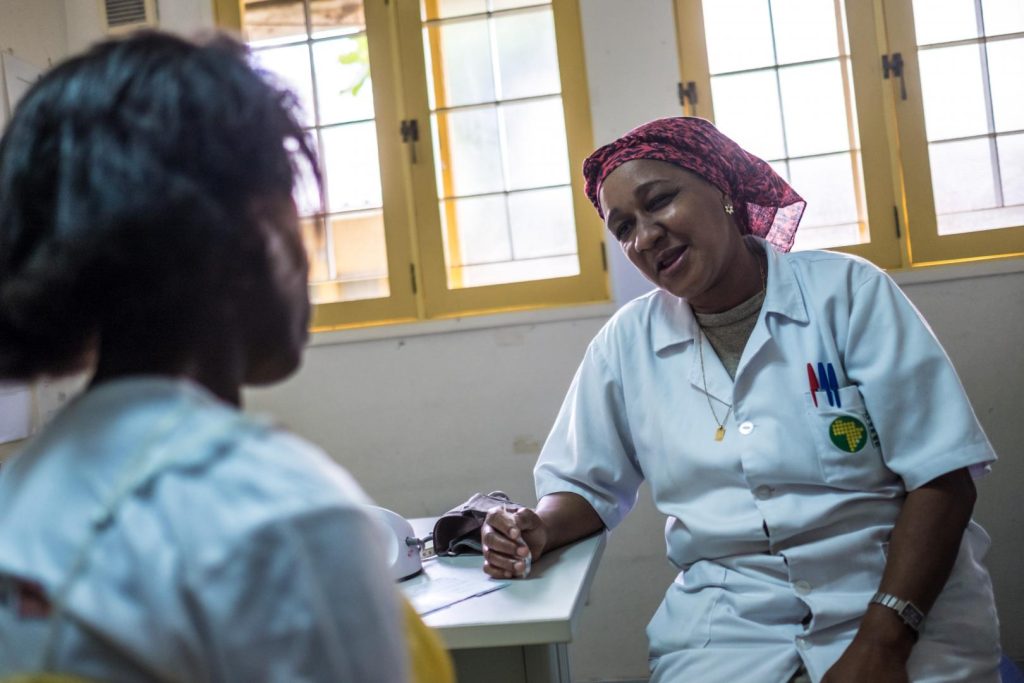In recent years, there has been increasing acknowledgement of the important role mental health plays in achieving global development goals, as evidenced by the inclusion of mental health in the Sustainable Development Goals.
The World Health Organization (WHO) describes mental health as a “state of well-being in which the individual realizes his or her own abilities, can cope with the normal stresses of life, can work productively and fruitfully, and is able to make a contribution to his or her community”.
Mental disorders and psychoactive substance-related disorders are highly prevalent throughout the world and are major contributors to morbidity, disability, and premature mortality.
It often manifests as anxiety disorders, behavioural and emotional disorders in children, bipolar affective disorder, depression, dissociation and dissociative disorders, eating disorders, obsessive-compulsive disorder, paranoia, post-traumatic stress disorder, psychosis and schizophrenia.
Any of these mental illnesses can affect a person’s thinking, perceptions, mood or behaviour and make it difficult for someone to cope with work, relationships and other demands.
According to the National Centre for Biotechnology Information (NCBI), an estimated 14.3 per cent of deaths worldwide, or approximately 8 million deaths each year, are attributable to mental disorders.
In Nigeria, a survey carried out by Africa Polling Institute and EpiAFRIC showed limited knowledge about mental health and a huge stigma associated with mental health disorders, which makes it difficult for most sufferers to get the help they need.
“An estimated 20–30 per cent of the Nigerian population are believed to suffer from mental disorders. This finding corroborates with the 2006 WHO-AIMS report that claims that about 20 million Nigerians suffer from mental illness and a good number of them go without professional assistance,” the report said.
Some of the reasons it gave for this high figure are economic hardship, negative environmental externalities, and the rising cost of decent living in the country.
Similarly, a meeting of health experts during a two-day expo for Human Resource (HR) professionals which held in Lagos also identified stress as a trigger for mental illness and reiterated the need for employers to periodically access the psychological states and the stress level of their employees.
Speaking on the topic, “Improving the health of the workplace: Focus on mental health,” the Principal Consultant at Winbox Consulting Deji Osesona, said HR managers were the intermediary between business owners, leadership and employees. He added that they are advocates for employees and business owners.
“There is a need to introduce activities, including wellness campaigns, corporate or group work, team bonding to relax, physical exercise, speak out initiative, coaching cycle, mental health communication and wellness tips every week. These are results-oriented initiatives that could bring about efficiency and effectiveness in the workplace.
“For those organisations without HR, it becomes the responsibility of the business owners to adopt these methods and keep pushing them until they get the desired results,” Osesona said.
As the world marks the 75th anniversary of the founding of the WHO today April 7, it is hoped that Nigeria would allocate more resources to tackling the burden of mental health and reduce the psychological distress in which hundreds of thousands of children and parents live which impacts development.
With exception of Kaduna and Sokoto, 34 other states failed to meet the 15 per cent adequate health funding benchmark between 2020 and 2022, according to a health report released by The ONE Campaign.
“Far too many people who need help for mental health conditions do not receive it, yet mental health is integral to wholesome health and well-being,” WHO Regional Director for Africa Matshidiso Moeti said.
He added: “The greatest challenge to adequate mental health service provision in Africa is the chronically low investments by governments.”
